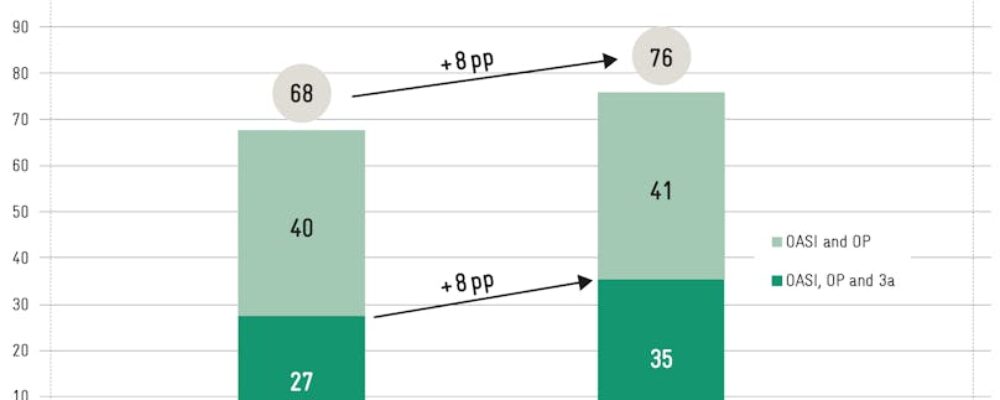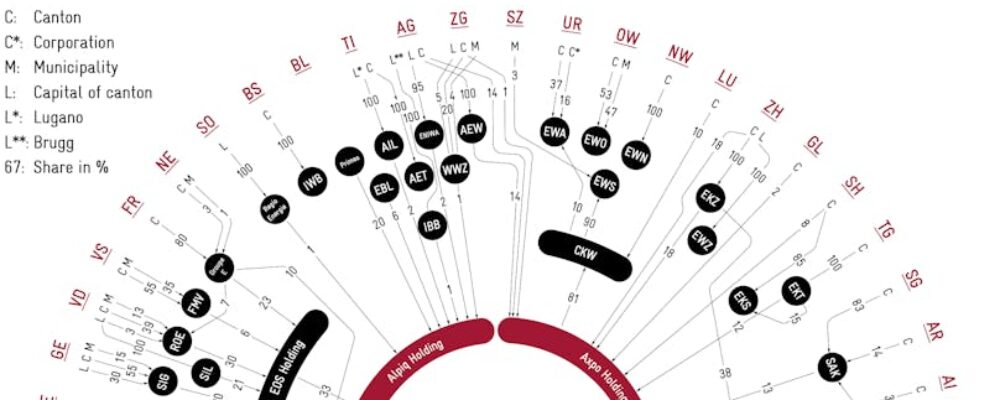How much immigration does Switzerland need and want? There are different angles to this question. On the one hand, there is a labour shortage that will worsen owing to demographic ageing. Without any immigration, around 800,000 vacancies would remain unfilled in 2030. On the other hand, there also needs to be a discussion about the consequences of a Swiss population of 9 million.
The decision of both chambers of parliament to relax the law on foreigners is all the more pleasing given the increasingly sceptical media response to migration. Specifically, the easing will involve reducing the barriers to foreign university graduates within the enter the Swiss labour market.
Currently, around 4,000 students from so-called third countries (countries outside the EU/EFTA) complete their studies at Swiss universities each year, more than half of them in science, technology, engineering, and math (STEM subjects). Many of these people have talents that are urgently needed in the job market. However, citizens of third countries who wish to work in Switzerland after completing their studies face many obstacles. A work permit is only granted if the employment is proven to be of high scientific or economic interest. In addition, there must be quotas available, as university graduates are subject to the quotas for third-country workers.
The upshot of this extremely complex and uncertainty-ridden admission practice is that startups and SMEs do not even attempt to recruit talent from third countries. The practice becomes even more questionable when you realize that Switzerland invests around 200 million Swiss francs annually in the education of students from third countries.
Exceptions or Special Quotas?
Now there is to be a change in the law designed to defuse this issue: In the future, those who obtain a Swiss university degree should be exempted from quotas in sectors facing a shortage of skilled workers. The Council of States dealt with a proposal to this end on Monday in its capacity as the second chamber. However, the matter will return to the preparatory committee for detailed deliberation.
Special regulation seems justified insofar as these are qualified individuals who have received a publicly financed Swiss education, have already lived in Switzerland for some time, and are generally well-integrated. An estimated 400-500 graduates are likely to benefit from this annually.
Nevertheless, constitutional concerns cannot be completely dismissed. The Federal Constitution requires that immigration be limited by means of annual maximum numbers and quotas. However, the law already provides for various exceptions (e.g., for spouses). A potentially more elegant (and constitutional) approach would be to create separate special quotas for university graduates, which would be administered without bureaucracy in streamlined processes.
Redefining Immigration from Third Countries
The parliamentary proposal should also be understood as a first step towards reconsidering the role of third-country migration in the long term ‒ not with the intention of increasing immigration numbers, but as a substitute for dwindling sources of skilled workers. It’s not only a problem for Switzerland. Many other (European) countries also face a significant shortage of skilled workers.
This trend will be exacerbated by the shrinking number of domestic university graduates. By 2030, China and India are estimated to account for around half of all 25 to 34-year-olds with a university degree, while the United States and the EU together will only reach about 15 per cent. In the STEM subjects, the expectation is that around 60 per cent of all talents will come from China and India.
Politically, it currently seems sensible to “only” optimize the immigration regime as envisaged for university graduates. However, demographic shifts are likely to increasingly force us to rely on third-country workers in the long run. Switzerland should therefore consider, sooner rather than later, how specifically it intends to respond to declining numbers of immigrants from Europe.
“Avenir Suisse is an independent think tank that works for the future of Switzerland by developing evidence-based, liberal, free-market ideas.”
Please visit the firm link to site






